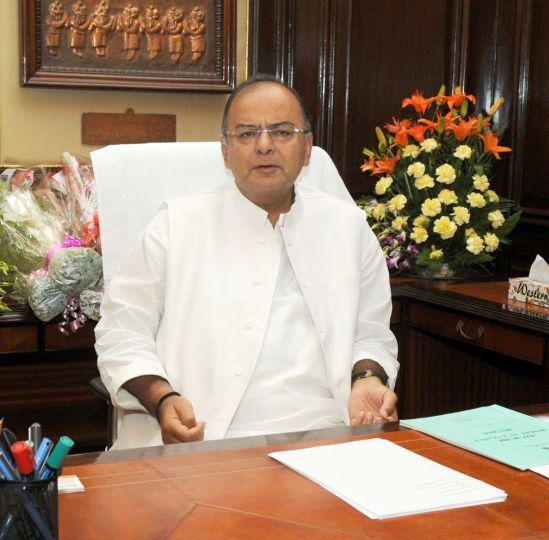 Finance Minister Arun Jaitley on Wednesday asked the CAG not to sensationalise its findings to get into headlines, a view the Congress party had voiced in the past after huge notional losses were projected in reports on 2G and coal allocation scams.
Finance Minister Arun Jaitley on Wednesday asked the CAG not to sensationalise its findings to get into headlines, a view the Congress party had voiced in the past after huge notional losses were projected in reports on 2G and coal allocation scams.
"Auditor should be conscious of the fact that he is reviewing a decision that has already been taken. Have the fair procedures been followed?
"He doesn't have to sensationalise. He doesn't have to get into the headlines," Jaitley said at annual conference of the Comptroller and Auditor General (CAG).
He said an auditor has to be "an active auditor but activism and restraint are always the two sides of the same coin."
The CAG reports on 2G telecom spectrum allocation and coal mine allotment which carried figures of notional losses to the tune of Rs 1.76 lakh crore and Rs.1.84 lakh crore respectively had caused tremendous discomfort for the UPA government and the Congress party that headed the coalition.
They had also come in handy for the Opposition then. "He (Auditor) has to scrutinise thoroughly the decision making process. He has to necessarily eliminate the possibility of any form of nepotism...," Jaitley said.
On Monday, Parliament's Public Accounts Committee Chairman and senior Congress leader K V Thomas too had said in the conference that the auditor should restrict audits to financial impropriety and not come out with "astronomical" figures of notional losses.
Jaitley also said that an auditor must be able to distinguish between a wrong decision and a corrupt one. "If he finds it (the decision) is a corrupt view, then the level of discretion he exercises in commenting has to be entirely different," he said.
The Minister said that the auditor must take "a more liberal approach" when confronted with multiple views.
"Because let us also not forget when we live in a society, which by temperament, having learnt the hard way the last few years, have become an over suspicious society and therefore our job is not to convert the public opinion into a kind of a lynch mob.
"To create rationality in the reviewing process we spare a decision which palpably looks arbitrary decision, a decision which is not fair, a decision which is not honest and we leave some element of benefit of doubt for a decision where two possible views are possible. But we can always lay down the guidelines as far as the future is concerned," he said.
Referring to 2G spectrum and coal block allocation, he said, the country has paid a very "heavy price" as contracts were cancelled and power sector is even suffering today.
"Both in the spectrum and coal case, we have learnt that natural resources and there allotment is not the prerogative of the state to choose methodology...valueable resources cannot be allocated without value being realised," he said.
Highlighting the importance of audit, he said it was essential for accountability and transparency. It helps in good governance.
"...(if) uncomfortable questions at times were not asked, governance would tend to become despotic and therefore in any system of governance there has to be various laws of accountability and this is in itself an unquestionable proposition," he added.











 © 2025 Rediff.com -
© 2025 Rediff.com -